第135章 THE LONELY MAN(5)
The hours of postal delivery found him waiting in an anguish of suspense. At eight o'clock each morning he stood by his window, listening for the postman's knock in the street. As it approached he went out to the head of the stairs, and if the knock sounded at the door of his house, he leaned over the banisters, trembling in expectation. But the letter was never for him. When his agitation had subsided he felt glad of the disappointment, and laughed and sang.
One day Carter appeared at the City Road establishment, and made an opportunity of speaking to his clerk in private.
'I suppose,' he said with a smile, 'they'll have to look out for someone else at Croydon?'
'By no means! The thing is settled. I go at Christmas.'
'You really mean that?'
'Undoubtedly.'
Seeing that Reardon was not disposed even to allude to private circumstances, the secretary said no more, and went away convinced that misfortunes had turned the poor fellow's brain.
Wandering in the city, about this time, Reardon encountered his friend the realist.
'Would you like to meet Sykes?' asked Biffen. 'I am just going to see him.'
'Where does he live?'
'In some indiscoverable hole. To save fuel, he spends his mornings at some reading-rooms; the admission is only a penny, and there he can see all the papers and do his writing and enjoy a grateful temperature.'
They repaired to the haunt in question. A flight of stairs brought them to a small room in which were exposed the daily newspapers; another ascent, and they were in a room devoted to magazines, chess, and refreshments; yet another, and they reached the department of weekly publications; lastly, at the top of the house, they found a lavatory, and a chamber for the use of those who desired to write. The walls of this last retreat were of blue plaster and sloped inwards from the floor; along them stood school desks with benches, and in one place was suspended a ragged and dirty card announcing that paper and envelopes could be purchased downstairs. An enormous basket full of waste-paper, and a small stove, occupied two corners; ink blotches, satirical designs, and much scribbling in pen and pencil served for mural adornment. From the adjacent lavatory came sounds of splashing and spluttering, and the busy street far below sent up its confused noises.
Two persons only sat at the desks. One was a hunger-bitten, out-of-work clerk, evidently engaged in replying to advertisements;in front of him lay two or three finished letters, and on the ground at his feet were several crumpled sheets of note-paper, representing abortive essays in composition. The other man, also occupied with the pen, looked about forty years old, and was clad in a very rusty suit of tweeds; on the bench beside him lay a grey overcoat and a silk hat which had for some time been moulting. His face declared the habit to which he was a victim, but it had nothing repulsive in its lineaments and expression; on the contrary, it was pleasing, amiable, and rather quaint. At this moment no one would have doubted his sobriety. With coat-sleeve turned back, so as to give free play to his right hand and wrist, revealing meanwhile a flannel shirt of singular colour, and with his collar unbuttoned (he wore no tie) to leave his throat at ease as he bent myopically over the paper, he was writing at express speed, evidently in the full rush of the ardour of composition. The veins of his forehead were dilated, and his chin pushed forward in a way that made one think of a racing horse.
'Are you too busy to talk?' asked Biffen, going to his side.
'I am! Upon my soul I am!' exclaimed the other looking up in alarm. 'For the love of Heaven don't put me out! A quarter of an hour!'
'All right. I'll come up again.'
The friends went downstairs and turned over the papers.
'Now let's try him again,' said Biffen, when considerably more than the requested time had elapsed. They went up, and found Mr Sykes in an attitude of melancholy meditation. He had turned back his coat sleeve, had buttoned his collar, and was eyeing the slips of completed manuscript. Biffen presented his companion, and Mr Sykes greeted the novelist with much geniality.
'What do you think this is?' he exclaimed, pointing to his work.
'The first instalment of my autobiography for the "Shropshire Weekly Herald." Anonymous, of course, but strictly veracious, with the omission of sundry little personal failings which are nothing to the point. I call it "Through the Wilds of Literary London." An old friend of mine edits the "Herald," and I'm indebted to him for the suggestion.'
His voice was a trifle husky, but he spoke like a man of education.
'Most people will take it for fiction. I wish I had inventive power enough to write fiction anything like it. I have published novels, Mr Reardon, but my experience in that branch of literature was peculiar --as I may say it has been in most others to which I have applied myself. My first stories were written for "The Young Lady's Favourite," and most remarkable productions they were, I promise you. That was fifteen years ago, in the days of my versatility. I could throw off my supplemental novelette of fifteen thousand words without turning a hair, and immediately after it fall to, fresh as a daisy, on the "Illustrated History of the United States," which I was then doing for Edward Coghlan.